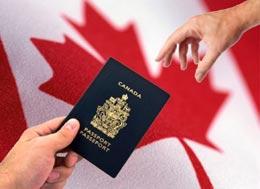Scams targeting immigrants in Surrey

Fraudsters are targeting South Asian immigrants in Surrey, especially in the Newton area posing as Canadian Immigration and Citizenship officers and threatening them with deportation.
Mounties told a community police meeting recently that over this past month, an average of 3-5 people attended the Newton Community detachment office on a daily basis because they have been victimized by fraudsters claiming to be officers from Citizenship and Immigration Canada (CIC) , threatening them of deportation if they do not pay a sum of money.
Victims have been predominantly South Asian.
A fraud alert has been distributed to community workers and others contacts who are working with immigrants and people of South Asian decent, to advise them of this scam and how to report it if they or anyone they know is targeted by this fraud.
Anyone who receives a threatening call should hang up immediately, contact their local police, and report the incident to the Canadian Anti-Fraud Centre by telephone at 1-888-495-8501, through their Web site http://www.antifraudcentre.ca or by email [email protected]
Citizenship and Immigration Canada (CIC) in its alerts said it is receiving an
increasing number of reports of a cross-Canada telephone scam. CIC is warning the public of fraudulent telephone calls in which the caller identifies themselves as a CIC officer calling to collect additional personal information and/or to ask that a fine be paid immediately to avoid deportation.
In the most recent telephone scams, the caller has been attempting to scare individuals by quoting laws the individual supposedly violated and threatening them with warrants for arrest, jail time, loss of immigration status and deportation if a fine is not paid.
In other cases, the victims were asked to confirm or provide additional personal
information such as their date of birth, passport number, Social Insurance Number (SIN), landing date, credit card numbers or bank account information.
CIC said that it does not contact clients over the telephone for the purpose of collecting fines to avoid deportation, and that it never asks for payments to be made by purchasing pre-paid credit
cards or through a private money transfer service provider. CIC officers encourage clients to pay their fees through their bank services or by using the payment option available on CIC’s Web site (http://www.cic.gc.ca/appsurl.asp?id=10&lang=eng).
If anyone has concerns about the legitimacy of a call, they are encouraged to ask for the name of the agent and then call the Citizenship and Immigration Canada Call Centre at 1-888-242-2100 to confirm that the call is genuine.
Dan Williams, a spokesman with the Canadian Anti-Fraud Centre, warned that using prepaid cards in much like sending cash, and as soon as you give the code on the back to somebody, they can access the cash within minutes. "There is no reason why you'd be paying with prepaid card to a stranger. If someone's steering you towards prepaid cards, there's a 99.9 per cent chance it's a scam, especially if they are presenting themselves to be a government agency or institution," he told CBC.
Police in Abbotsford, B.C., are also warning people to beware of telephone and e-mail scams demanding money from apparently legitimate agencies.
In one case a man was robbed of $1,900 by a fraudster claiming to be calling from Citizenship and Immigration Canada, local media said.
The caller demanded the victim pay $4,280 within the next seven hours or face immediate deportation. The conversation took place in both English and Punjabi, say police.
The victim checked caller ID and the number "appeared" to be legitimate so he went out and bought several pre-loaded credit cards as instructed by the scammer.
After the victim called the scammer back to give them the credit card information the scammer demanded the victim pay the remaining amount immediately.
That's when an employee at the business that was selling the cards became suspicious and called police, who contacted the victim and determined he had lost his cash to the scammer.
Const. Ian MacDonald warns fraudsters are able to "spoof" telephone numbers to make it look like they are calling from legitimate government agencies.
MacDonald says people have to be suspicious and says no legitimate agency would ever call or send an e-mail demanding money right away.
Similar versions of the scam have included callers claiming to be from utility companies such as BC Hydro or Revenue Canada, and demanding immediate payments by pre-paid credit cards.
The pre-paid cards are demanded by the scammers because as soon as you give the code on the back to somebody, they can access the cash within minutes.









